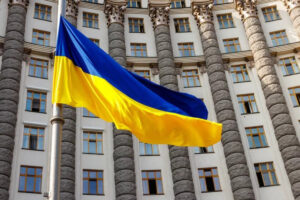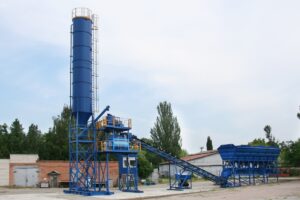
In September 2025, the number of service station partners of Express Insurance (Kyiv) grew by two more stations, reaching 138 across Ukraine.
According to information on the company’s website, service stations located in the Odesa and Cherkasy regions have joined the network of companies.
In total, during 2024-2025, the number of the company’s partner service stations increased by 80 stations.
The development of the partner network is part of Express Insurance’s strategic course to provide services and fulfill obligations in accordance with the new Law on Compulsory Civil Liability Insurance, which came into force on January 1, 2025.
Express Insurance was founded in 2008 and is part of the UkrAVTO group of companies. It specializes in auto insurance. The consistently high speed of claims settlement at the insurance company is ensured by optimal interaction with partner service stations.
Since April 2012, Express Insurance has been an associate member of the Motor Transport Insurance Bureau of Ukraine.

The Cabinet of Ministers of Ukraine has allocated UAH 6 billion from the state budget reserve fund to implement measures related to strengthening the country’s defense capabilities.
According to Government Order No. 1135 of October 18, the funds have been allocated for measures related to strengthening the country’s defense capabilities and preventing man-made emergencies, in particular for the construction of protective structures for critical infrastructure facilities in the fuel and energy sector, the railway transport subsector of the transport and postal sector (protection of traction substations with a primary voltage level of 150 (110) kV) and the critical infrastructure life support systems sector (heat energy supply, water supply, and water disposal).
The Ministry of Community and Territorial Development (for the joint-stock company Ukrainian Railways) has been allocated UAH 800.5 million; regional state administrations (for regional military administrations) — UAH 5.2 billion.
As previously reported, the funds will be used to strengthen energy, transport, and vital systems — from generators and battery stations to the construction of engineering protection, which will allow for faster construction of protective structures, rapid restoration of damaged facilities, and ensure the uninterrupted operation of the energy sector.

Olena Stepanenko, a member of the supervisory board of Kremenchug Road Machinery Plant JSC (Kredmash, Poltava region), increased her stake in the company from 4% to 20%, in particular, through the direct sale of 15.97% of the shares belonging to the chairman of the supervisory board, Kredmash president Mykola Danileiko, who died in April 2025.
According to information provided by the company in the disclosure system of the National Securities and Stock Market Commission (NSSMC), Boris Muntean, who owned 5.07% of Kredmash JSC shares, also left the group of shareholders. Until 2002, Muntean held the position of director of Kredmash, where he was replaced by Danileiko.
Olena Mykolaivna Stepanenko is likely the daughter of Mykola Danileiko (in an interview with the local press, he said that he has a daughter named Olena – IF-U).
As of the first quarter of this year, according to the National Securities and Stock Market Commission, the shareholders of Kredmash JSC who own more than 5% of the authorized capital also include the head of the company, Oleksandr Tverezyi (10.21%), and KDM Invest LLC (9.81%), whose ultimate beneficiaries, according to opendatabot, are Oleksandr Tverezyi and Olena Stepanenko (49.95% each).
The shareholders of Kredmash JSC also include Euroavtomatizatsiya LLC (9.6%), whose ultimate beneficiary is listed as Oleg Oksak.
Kredmash specializes in the development and manufacture of asphalt and soil mixing plants, spare parts for construction and road equipment, tank trucks, bitumen tankers, cast iron and steel castings.
In 2024, the plant reduced its net sales revenue by 23% compared to 2023, to UAH 143.65 million, while its losses decreased by almost 23%, to UAH 13.08 million.
As reported, in pre-war 2021, the plant sold products worth UAH 1.2 billion. In June 2022, as a result of hostile missile strikes on Kremenchuk, the plant’s industrial facilities were partially destroyed.

One of Ukraine’s largest grain market operators, Nibulon LLC, recouped approximately $1 million in investments in a digital twin of elevators developed on the basis of the IT-Enterprise ERP system in less than a year by reducing the number of employees and grain losses.
“In conditions of staff shortages, the system allows us to reduce our dependence on manual labor… Previously, 80-100 people worked at one elevator, today there are about 20-30,” according to a joint press release issued by the companies on Monday.
It is noted that the implementation of the new system from IT-Enterprise has improved accounting accuracy and reduced grain losses by 1%.
“We have improved quantitative and qualitative accounting and automated every step of the process: the movement of grain from the moment it arrives at the elevator to shipment to the end consumer, including control of grain quality indicators and resources spent on its processing,” the release quotes Nibulon IT Director Mykola Ryasko as saying.
In addition, it was possible to ensure transparent access to grain quality parameters determined as a result of laboratory tests. In particular, the data is now available in a mobile application along with other operational information.
The agricultural holding specified that it integrated the digital twin of 23 elevators in 2024. “A digital twin is a digital copy of production that is updated in real time based on data from sensors and other sources. This allows you to effectively simulate elevator operating modes and manage all processes from anywhere in the world,” commented Oleg Shcherbatenko, CEO and founder of IT-Enterprise, on the project.
As previously reported by Andriy Vadatursky, owner and CEO of Nibulon, in 2024 the company invested $2 million in the digitization of production processes, which was directed towards the creation of a digital copy of the elevator and a mobile application. According to him, the software has been installed on all of the grain trader’s elevators and connected to a common network.
Before the war, Nibulon cultivated 82,000 hectares of land in 12 regions of Ukraine and exported agricultural products to more than 70 countries around the world. In 2021, the grain trader exported a record 5.64 million tons of agricultural products. After the war began, the company was forced to move its central office from Mykolaiv to Kyiv.
This year, Nibulon plans to increase grain exports to 4 million tons from 2.5 million tons last year, while its land bank has shrunk to 1,000 hectares and its workforce has fallen from 6,000 to less than 2,000.

Agricultural production in Ukraine in January-September 2025 decreased by 14% compared to January-September 2024, while in January-August the decline was 8.4%, according to the State Statistics Service (SSS).
According to its data, during the reporting period, livestock production decreased by 4.4%, and crop production by 16.4% compared to the same period in 2024.
At the same time, in crop production, the main decline was in enterprises – 20.9%, while in private households, the decline was 6.1%.
At the same time, the situation in livestock production was the opposite: enterprises reduced production by only 1.4%, while private households reduced it by 8.9%.
A significant decline in production was recorded in the Donetsk, Kherson, and Dnipropetrovsk regions, where production fell by 43.9%, 33.1%, and 24.4%, respectively. In the case of the Donetsk region, there was an 18.5-fold drop in livestock production by enterprises.
A reduction of more than 20% in agricultural production also occurred in the Sumy and Chernihiv regions, which suffer from constant shelling, but the Khmelnytsky region is also on this list.
As for growth, according to the results of nine months, it was recorded in only one region, where there was the least shelling during the war – Zakarpattia, and amounted to 2.7%, including a threefold increase in livestock production by enterprises.
As reported, according to the results of eight months of this year, crop production decreased by 9.7%, and livestock production by 4.9%. In particular, in January-August of this year, the decline in crop production amounted to 12.2%, and livestock production – 2.4%, while in households – 5.3% and 8.6%, respectively.

In January-September 2025, Ukrnafta completed the drilling of 15 new wells, with another 10 currently being drilled. A total of 25 new facilities are planned to be commissioned by the end of the year, according to a press release issued by the company on Monday.
“We are maintaining production growth: +4.5% for oil and +1.7% for gas,” said Yuriy Tkachuk, acting chairman of the board of Ukrnafta.
According to the company, Ukrnafta uses 3D geological modeling, API-standard equipment, digital solutions, and artificial intelligence technologies to achieve significant results.
Over the past three years, Ukrnafta has conducted 1,330 square kilometers of 3D seismic surveys, which creates the basis for expanding the company’s resource base and helps to drill new wells more efficiently.
Ukrnafta is Ukraine’s largest oil production company and operates the national network of gas stations. In March 2024, it took over the management of Glusco’s assets and currently operates a total of 663 gas stations. It holds 92 special permits for industrial development of deposits. It has 1,832 oil and 154 gas production wells on its balance sheet.
The largest shareholder of Ukrnafta is Naftogaz of Ukraine with a 50%+1 share. In November 2022, the Supreme Commander-in-Chief of the Armed Forces of Ukraine decided to transfer the company’s corporate rights, which belonged to private owners, to the state, and they are currently managed by the Ministry of Defense.
Ukrnafta’s net profit for 2024 was UAH 16.38 billion.